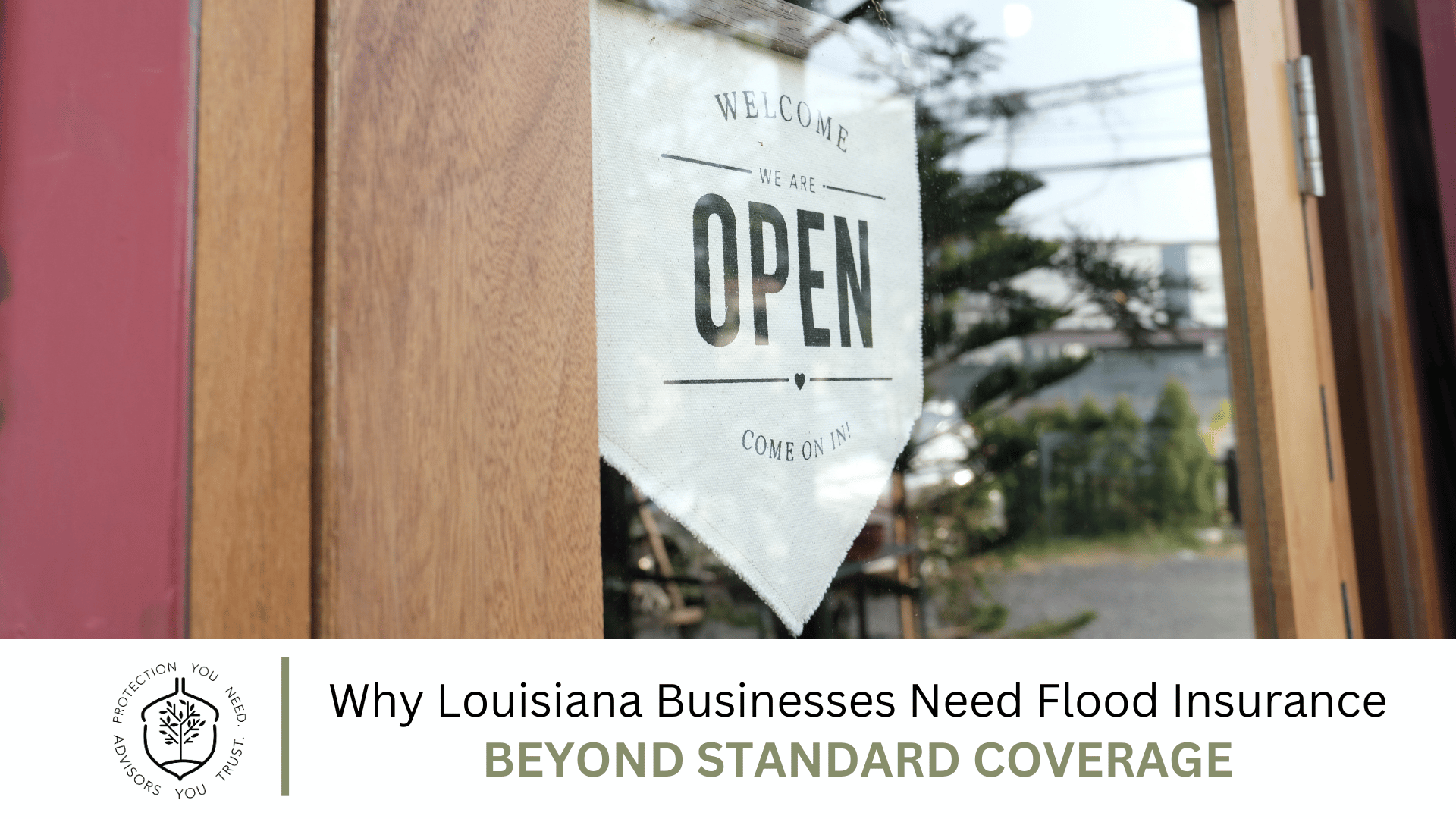Louisiana businesses face multiple flood risks from hurricanes, intense rainstorms, and overflowing rivers. Many business owners assume their commercial property insurance covers all water-related risks. However, standard policies typically don’t include flood damage.
In the following sections, we’ll break down what your current insurance might be missing and how flood insurance can keep your business afloat when waters rise.
The Gap in Standard Commercial Property Coverage
Let’s clear up a common misunderstanding. Your standard commercial property insurance isn’t as all-encompassing as you might think. It protects against fire, theft, vandalism, and some storm damage like wind. These are essential protections, but there’s a major gap: flood damage.
These commercial policies don’t typically cover flooding. If water rises from the ground and affects your business, you’re left to cover the costs. Flood insurance is essential to fill this coverage gap.
Understanding Commercial Flood Insurance
The National Flood Insurance Program offers two main types of coverage: Building Property and Personal Property. These are separate policies, each with its own deductible and claims process. You’ll also need to get them separately.
Building Property Coverage protects the bones of your business, such as the structure, foundation, electrical and plumbing systems, water heaters, and built-in appliances. Personal Property Coverage, on the other hand, safeguards the contents inside, such as furniture, equipment, stock (merchandise held for sale or distribution), and portable appliances.
While we’ve touched on some key points here, it’s crucial to remember that these are just the highlights. For a complete list of what’s covered under each type of policy, always refer to your specific policy documents.
There are also some notable exclusions. Here’s what’s typically not insured under either Building Property or Personal Property coverage:
- Damage from moisture, mildew, or mold that could have been avoided.
- Sewer or drain backups, unless directly caused by flooding.
- Currency, precious metals, and valuable papers.
- Property outside the insured building, like pools or hot tubs.
- Financial losses from business interruption or loss of use.
- Most self-propelled vehicles and their parts.
This list isn’t exhaustive, so always refer to your specific policy for a complete list of exclusions.
There are also some key points to remember:
- Coverage limits top out at $500,000 for both building and contents.
- There’s usually a 30-day waiting period before your policy kicks in.
- Unlike some insurance, flood policies don’t automatically renew. You must renew every year.
Flood insurance for your business is a vital layer of protection in flood-prone areas. While it doesn’t cover everything, it can significantly reduce the financial impact of flood damage.
Always review your policy details carefully and discuss any questions with your insurance provider to ensure you have the right coverage for your specific business needs.
Read Also: How to Protect Your Business from Hurricanes
If you’re ready to explore flood insurance options, TSL Insurance Group is here to help. As your local insurance agency in Lafayette, Baton Rouge, Franklin, Abbeville, and Lutcher, we understand the unique challenges Louisiana businesses face.
We offer free consultations to assess your flood risk and provide detailed explanations of coverage options.
Contact our insurance agency in Lafayette, Baton Rouge, Franklin, Abbeville, or Lutcher today.
Source:


Recent Comments